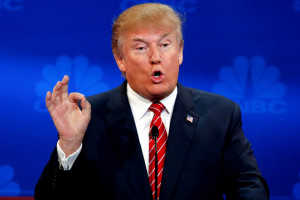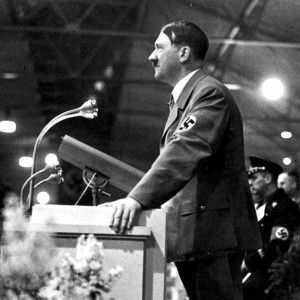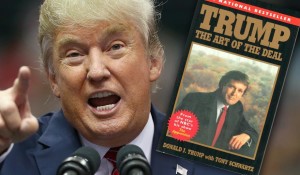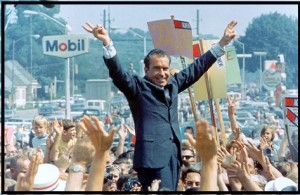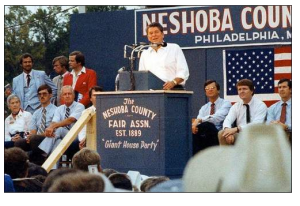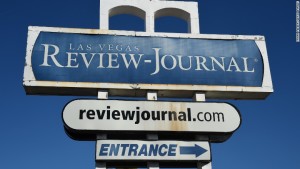“We have fought against the multinationals, we have fought against the big merchant banks, we have fought against big politics, we have fought against lies, corruption and deceit.”
Nigel Farage, advocate of the UK exit from the European Union
——–
It will be remembered as one of the great unforced errors in modern political history. In the language of soccer – this is Britain after all – soon to be former British Prime Minister David Cameron scored an “own goal,” kicking the ball into his own net. In one crazy act of political suicide Cameron threw a referendum bone to his political opponents. They ate the bone and then consumed him for good measure.

The Brits may have become the first people in the history of the world to vote for a recession. For sure they have voted for months – maybe years – of financial turmoil, economic and political isolation and very likely an independent Scotland. Brits also voted to validate the ugly kind of nationalism that is seeping across Europe. When the Brexit outcome is applauded by France’s ultra-right Marine Le Pen, the Kremlin and Donald Trump you instinctively know you are on the wrong side of history.
The Self-Inflicted Wound…
Cameron, a nominally successful politician before Brexit, will now be remembered for crashing his Conservative Party and speeding the disunion of Europe at the very moment the region needs even greater unity to deal with everything from trade to terrorism. Comparisons to Neville Chamberlain are inevitable. Meanwhile, the chief opposition party, Labour, is also in disarray and it seems inevitable that the party’s far left leader will have to go.
Why? Why reduce the United Kingdom’s long-term future to a plebiscite? Why risk it all on a one-off election with the highest of high stakes? The answer, of course, is political and here we begin to see the real relevance for the United States in 2016 of what has so dramatically happened in Britain.
Cameron set off these falling dominos of destruction in 2014 when in order to win an outright Conservative majority in the British parliament he attempted to placate radicals in his own party and in the uber-nationalist rightwing UK Independence Party (UKIP) with an up or down, in or out vote on the EU. Rather than fight the 2015 election over staying in Europe, Cameron tried to have it both ways even saying at one point that he might led the effort to leave the EU after he was re-elected. It was rank political opportunism from the guy one British Labour Party member recently dubbed “Dodgy Dave.”
Cameron compounded the dangers of his risky EU gamble by presiding during the recent campaign over a shambling Conservative Party that spoke with many discordant voices. Several of Cameron’s own cabinet ministers campaigned against him and remaining in the EU. Chaos follows chaos.
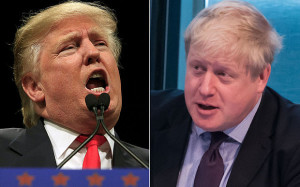
The “leave” campaign was led by another artful dodger, albeit one more colorful than Cameron, the former mayor of London Boris Johnson, a New York born gasbag with Churchillian ambitions who now maneuvers to replace Cameron. Leave it to an Irishman, the Irish Times columnist Fintan O’Toole, to correctly sum up BoJo, as Johnson is nicknamed: “He has a streak of Churchill’s brilliant opportunism and reckless charm, but he does not have behind him the national consensus that an existential struggle created behind Churchill and he is, in everything but girth, a lightweight.”
The U.S. Plays This Cynical Game Too…
None of this so much compares to Churchill-type politics as to the cynicism and recklessness of Congressional Republicans in the United States like Senator Mitch McConnell and House Speaker Paul Ryan (not to mention all of Ryan many predecessors, one of whom just reported to federal prison). This is why the British action looms so very large across the American political landscape.
The vote to leave the EU doubtless has its roots in a variety of toxic soil – anti-immigration, fears of globalization, misunderstandings about free trade, hatred of the “privileged elites,” long simmering class resentments and totally valid concerns about growing income inequality. Johnson and UKIP’s leader Nigel Farage, Britain’s Donald Trump with a better haircut, are ironically both men of wealth and privilege who played on the fears of many Brits, concocted fanciful stories about the benefits of leaving and now inherit a diminished UK more badly divided than ever. Sound familiar?
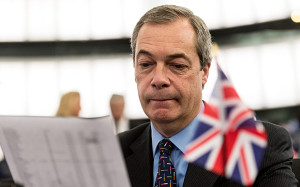
Writing in The Guardian Zoe Williams condemned Farage’s hateful rhetoric after the referendum, language that sounds remarkably like Trump’s “knock the crap out of ’em” talk. “But for poor taste and ugly triumph,” Williams wrote, “nothing matched [Farage’s] assertion that [the Leave vote] had happened ‘without having to fight, without a single bullet being fired.’”
A ridiculous comment, of course, since a pro-EU Member of Parliament was murdered days before the voting, the first MP lost to an “act of terror since the darkest days of the IRA and, leaving Ireland aside, the first since 1812. His words seemed to carry a tang of regret – echoing his dark mutterings of some weeks ago, when he predicted violence on the streets and sounded exhilarated by it.”
This is not the political talk or action of a western democracy, but something much more sinister, something to be condemned and defeated. It is the politics of cynicism, hatred and despair, of yesterday not tomorrow.
For most of the last eight years Congressional Republicans have done something similar by promising their mostly white, older base that obstructing political action on everything from immigration reform to climate change was the American way. They have mostly refused to condemn the fevered claims of white supremacists and talk radio that a duly elected president of the United States is somehow not one of us. They set out not merely to merely disagree with Barack Obama, but as McConnell infamously said, to “make him a one term president.”
Refusing to Set Expectations with Your Voters…
Republicans refused to really engage on big issues from health care to Syria, even voting no on a sensible economic stimulus and an essential auto bailout in the wake of The Great Recession knowing all the while that they could gin up the base with Barack bashing and yet one more promise to repeal Obamacare.
Now their presidential candidate tweets regularly about what “Obama has done with the debt,” while never acknowledging – or probably knowing – that no president spends money that has not been authorized and appropriated by the Republican Congress. Trump’s own claims to eliminate the debt are as unrealistic as the claims made by Britain’s anti-Europe crowd and just as widely discredited.
Yet simple lessons in civics and finance eludes not only the candidate, but his followers. Facts be damned. Even if a claim is pure poppycock, shot down by an “expert” who knows something, so what? it still makes a good message in 140 characters.
Failing to deliver for their base on undeliverable promises the GOP leadership now finds itself roughly where Dodgy Dave Cameron sits – on the outs with one-time supporters who feel conned, left trying to explain how a phony billionaire “populist” who traffics in insults and conspiracy theories has hijacked their party.
The Farage-Trump analogy even works to the level of both men’s penchant for the sleazy insult. Farage once told a former Belgian prime minister and top EU official to his face that he had “the charisma of a damp rag and the appearance of a low-grade bank clerk.” At least Farage’s insults are more original than Trump’s.
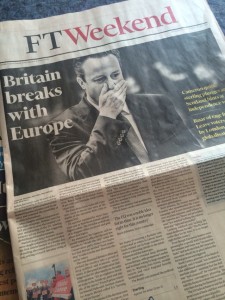
This stunning turn of events in both the UK and the U.S. is evidence of an appalling lack of political leadership, leadership willing to acknowledge that moderation in the pursuit of progress is actually a virtue.
It should also be said that the American left hardly has clean hands at this moment of upheaval. Bernie Sanders continues to stoke too many of his supporters into a populist lather with a message that, while more optimistic and forward looking than what is coming from the populist right still often ignores political reality. The hardest thing to do in politics is to say no to your supporters and the second most difficult is to temper their expectations. We are seeing this populist revolt in no small part because of a failure to do either.
Cameron likely could have shutdown the EU debate in 2015 by forcefully making the conservative case for the UK staying in Europe – British conservatives led the country into the EU in the first place in 1973 – but he gambled the country on his own election and now he has lost it all.
Finding the Center Again…
McConnell and Company have embraced a similar level of political opportunism, shunning any obligation to negotiate with Obama and displaying no willingness to instruct their base voters in the finer points of how democracy works. On the immigration issue alone Republicans might have found a sensible middle ground with Obama years ago. Some of them, including Marco Rubio, came close in 2013 to a political solution only to cave to the rampant xenophobia among the Tea Party faithful that now powers Trump’s campaign. The resulting division, exacerbated even more by an evenly split Supreme Court unable to rule in a recent critical case – again McConnell’s doing – has created racial tensions not seen in the country since the civil rights movement of the 1960s.

Writing from his own political exile brought on by his reckless embrace of George W. Bush’s Iraq policy, former British prime minister Tony Blair nevertheless made an essential point in a post-Brexit op-ed in the New York Times. With Britain and the U.S. clearly in mind, Blair wrote, “It was already clear before the Brexit vote that modern populist movements could take control of political parties. What wasn’t clear was whether they could take over a country like Britain. Now we know they can.”
Blair might have noted that Brexit and Trump have completed the transition of the once principled right of center conservative parties in Britain and the United States into collections of angry, aggrieved nationalists whose real currency is neither the pound or the dollar, but rather fear and hatred.
Remembering History, Acting Responsibly…
“The center must regain its political traction,” Tony Blair says, “rediscover its capacity to analyze the problems we all face and find solutions that rise above the populist anger. If we do not succeed in beating back the far left and far right before they take the nations of Europe on this reckless experiment, it will end the way such rash action always does in history: at best, in disillusion; at worst, in rancorous division. The center must hold.”

Next Sunday – July 1st – marks the 100th anniversary of the Battle of the Somme, the worst battle on the western front in The Great War. A million Europeans and most of a generation of Britain’s finest perished in one of the worst battles in human history all in order to prevent Europe from descending into a new dark age. The peace following The Great War lasted barely twenty years before an even more destructive war ravaged Europe. From that wreckage, barely seventy years ago, Europe began to come together in a genuine union – some wanted to call it a United States of Europe – with the belief that economic connections and open borders were the keys to security and peace, that cooperation was vastly more productive than national rivalry. All that idealism, all that reality stands torn and tattered now and the future is, at best, uncertain.
Winston Churchill, considered by the EU as one of the movement’s founders, once quoted a French politician as saying, “Without Britain there can be no Europe.” Churchill immediately added, “This is entirely true. But our friends on the Continent need have no misgivings. Britain is an integral part of Europe, and we mean to play our part in the revival of her prosperity and greatness.”
That is what political leadership sounds like.
These are not the times for opportunists and demagogues who peddle simple answers for the problems of a complex, rapidly changing and profoundly interconnected world. Send the populists of all stripes packing. They are the sowers of discord, the merchants of chaos. Britain has sent us a signal. It would be wise to pay attention.


